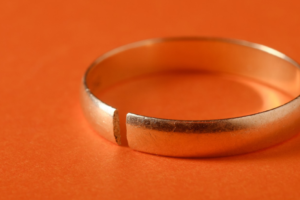Your Credit after Divorce – Finding the Balance

Divorce can be an expensive exercise for all parties involved, and we are not just talking about legal fees. In some circumstances, the sale of one shared home needs to finance the purchase of two homes. There are also other miscellaneous expenses such as bills and shared debts. If a financial problem is a contributing factor to the divorce, these added expenses make things worse.
It is, thus, common to have many people to survive a divorce by shouldering a huge burden of debt and damaged credit to their names. Rebuilding that credit will not be instantaneous, but each right decision on your finances will bring it one step closer.
RELATED ARTICLE: What Not to do During a Divorce
Here are some tips on how to rebuild your credit.
1. Understand your credit score
If you have never requested a personalised credit report, it is the best time to do so. You can ask for your credit report at Credit Bureau Singapore. The report will give you a credit score, which reflects how good or bad your credit history is. Armed with a knowledge of your credit score, you will be better equipped to tackle the debts and bills in your name and improve the score.
2. Split joint debts with your ex-spouse
The first thing to do in managing your debts is to split any joint debts that you may have with your ex-spouse. It is crucial that you do this as you need complete control of your credit history to improve your score with Credit Bureau Singapore. Any joint debts that remain will affect your credit history through your ex-spouse’s actions or nonactions.
Ideally, the divorce proceedings should outline the separation of any joint debts, but if it was overlooked, take steps to restructure your debts. The obligations that you are responsible for should be in your name only.
3. Budget 101
Budgeting helps you to make the right decision on your expenditure. It forces you to take a good look at your income and then makes the best use of it. You need to check if your salary is enough to pay for your daily expenses, bills and debts. If it is not enough, you may want to look into getting another part-time job to make enough to go by. If you depend on your ex-spouse previously in paying the bills at home, it will take some getting used to paying your bills and debts. Working on the discipline of paying your bills on time and spending within your limits will go a long way in helping you to rebuild your credit.
RELATED ARTICLE: Budgeting 101 – A Simple Way to Cope with Reduced Income after a Divorce
4. Face up to facts with bills you cannot pay
You may not want to acknowledge that you cannot afford some bills post-divorce. By facing up to facts, you can reduce the stress of paying these bills if they are items that you can live without. After taking out these unnecessary spending, you can focus on the bills and debts that you need to pay. If you are still struggling financially, then you may want to seek help at Credit Counselling Singapore, a charitable organisation that helps individuals with debt management.
It may be a long road back to good credit history, but as long as you put in your best efforts, you will get there.














